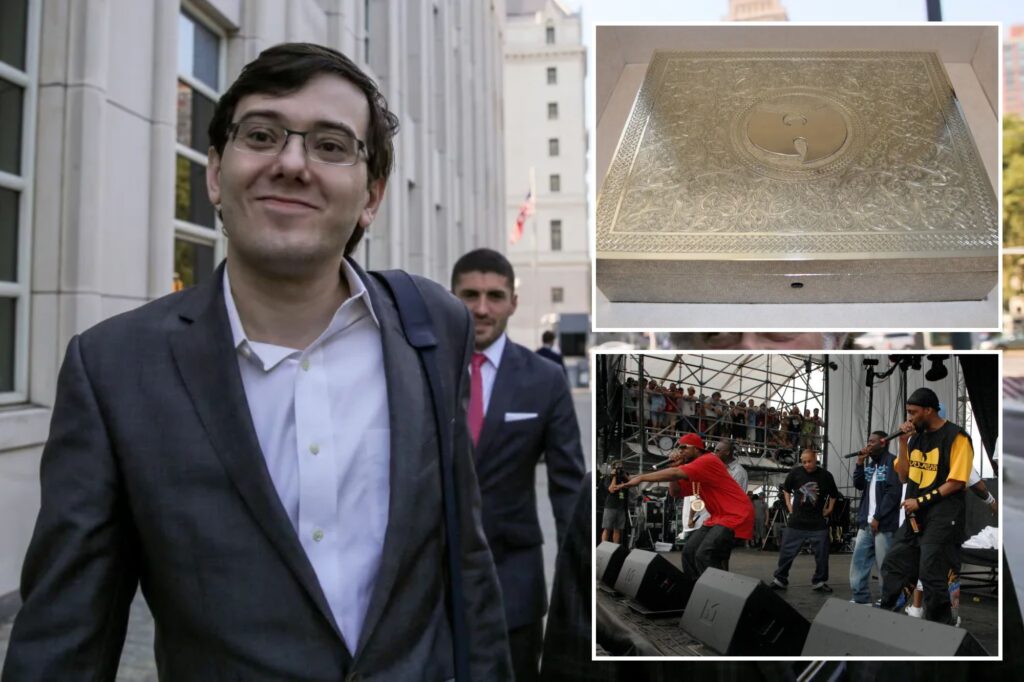Martin Shkreli has been sued in New York by a digital art collective that said it paid $4.75 million for a one-of-a-kind album by the hip-hop group Wu-Tang Clan, only to learn that the convicted pharmaceutical executive made copies and is releasing the music to the public.
Shkreli paid $2 million in 2015 for “Once Upon a Time in Shaolin,” and gave it up to partially satisfy a $7.4 million forfeiture order after his 2017 conviction for defrauding hedge fund investors and scheming to defraud investors in a drugmaker.
The plaintiff PleasrDAO said Shkreli has, since his May 2022 release from prison, told fans on live streams and social media platform X that he kept and had shared the album, once saying, “I was playing it on YouTube the other night even though somebody paid $4 million for it.”
PleasrDAO also said thousands of people tuned in on Sunday to hear the album on a live stream that Shkreli called a “Wu tang official listening party.”
Such activity violates the forfeiture order, amounts to misappropriation of trade secrets, and “greatly diminishes and/or destroys the album’s value,” according to the complaint filed Monday night in Brooklyn federal court.
PleasrDAO wants Shkreli to destroy his copies, turn over profits from disseminating the music, and pay compensatory and punitive damages.
Lawyers who have represented Shkreli in criminal and civil matters declined to comment or did not immediately respond to requests for comment.
The plaintiff is displaying “Shaolin” this month at the Museum of Old and New Art in Hobart, Tasmania.
Shkreli, 41, became notorious and gained the nickname “Pharma Bro” when, as chief executive of Turing Pharmaceuticals in 2015, he raised the price of the life-saving antiparasitic drug Daraprim overnight to $750 per tablet from $17.50.
He was released early from his seven-year prison sentence, but remains on supervised release.
Shkreli was banned in January 2022 from the pharmaceutical industry and ordered to repay $64.6 million for antitrust violations related to Daraprim.
A federal appeals court upheld the ban and payout in January.
The case is PleasrDAO v. Shkreli, U.S. District Court, Eastern District of New York, No. 24-04126.

